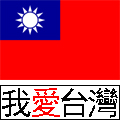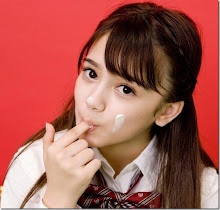
If you ever find yourself in a fine Chinese styled restaurant in Taiwan (or likewise China), you might want to try some steamed dumplings or steamed baozi, that are prepared in bamboo baskets named long 籠 (小籠 means small basket). One of the most famous dishes prepared this way are xiaolongbao 小籠包, very delicious steamed buns (Chinese baozi 包子) with a unique twirl on top and a very delicate (almost translucent) skin, of which the latter is also typical for Chinese dumplings (or jiaozi 餃子). Because of that similarity xiaolongbao are commonly mistaken for dumplings in the English speaking world. See a steamed dumpling for your reference and notice the typical "half moon" shape they have. But that's not the only thing that makes them distinct, the ingredients are different as well.
There are of course more types of xiaolongbao, but one of the most popular variants is filled with pork and gelatine, which then in the process of steaming turns into a soup. Because a lot of foreigners don't know how to eat that kind of steamed buns, I decided to write a little tutorial, so that you won't find yourself in a tricky situation among your Taiwanese or Chinese friends and eat them the wrong way.




How to eat xiaolongbao?
There are several ways to eat them. I will describe and recommend to you the most common and convenient way, the one that my wife prefers. Please follow these steps and refer to the photos for a better understanding:
1 Hold chopsticks in your right hand and a spoon in your left.
2 Take the bun out of the bamboo basket and dip it in a soy sauce with ginger.
3 Put the bun on the spoon and bring it together with the chopsticks close to your mouth.
4 Bite a small hole in the bun's edge and place it back in the middle of the spoon.
5 While the soup flows out on the spoon, lift up the bun with the chopsticks.
6 Wait few seconds for the soup to cool off and then drink it.
7 After that you can dip the bun in the sauce again, if you like, it's optional.
8 Eat the xiaolongbao in one or two bites and enjoy the delicious flavor.
1 Hold chopsticks in your right hand and a spoon in your left.
2 Take the bun out of the bamboo basket and dip it in a soy sauce with ginger.
3 Put the bun on the spoon and bring it together with the chopsticks close to your mouth.
4 Bite a small hole in the bun's edge and place it back in the middle of the spoon.
5 While the soup flows out on the spoon, lift up the bun with the chopsticks.
6 Wait few seconds for the soup to cool off and then drink it.
7 After that you can dip the bun in the sauce again, if you like, it's optional.
8 Eat the xiaolongbao in one or two bites and enjoy the delicious flavor.

A common faux-pas can be a too hasty bite and the hot soup will either burn your mouth or even worse surprise you and drip out on your or your friend's clothes. Not sure, how likely that is to happen, but it's not impossible. Just keep in mind that the soup inside the xiaolongbao is hot and needs to be released and cooled off, before it can be drunken. Don't just put the whole bun in your mouth.
With all this said, I think the best way to eat xiaolongbao is to observe your Taiwanese or Chinese friends and copy them or ask them to help you. I'm sure they will be very happy to assist you.
Other variants of eating xiaolongbao are:
1 Put the bun in a soup and eat it like a soup dumpling. Some shops prefer this way.
2 Poke a small hole in the bun's bottom with chopsticks to extract the soup, skill is needed.
3 Some shops offer straws to drink the soup inside. You don't believe it? Look here!

I hope this will help those who go to China or Taiwan for the first time. If you have any questions or additional tips, please submit them in the comments below.
[My TAIPEI FOOD page][My TAIWAN FOOD page][All photos by MKL, 2011]











































